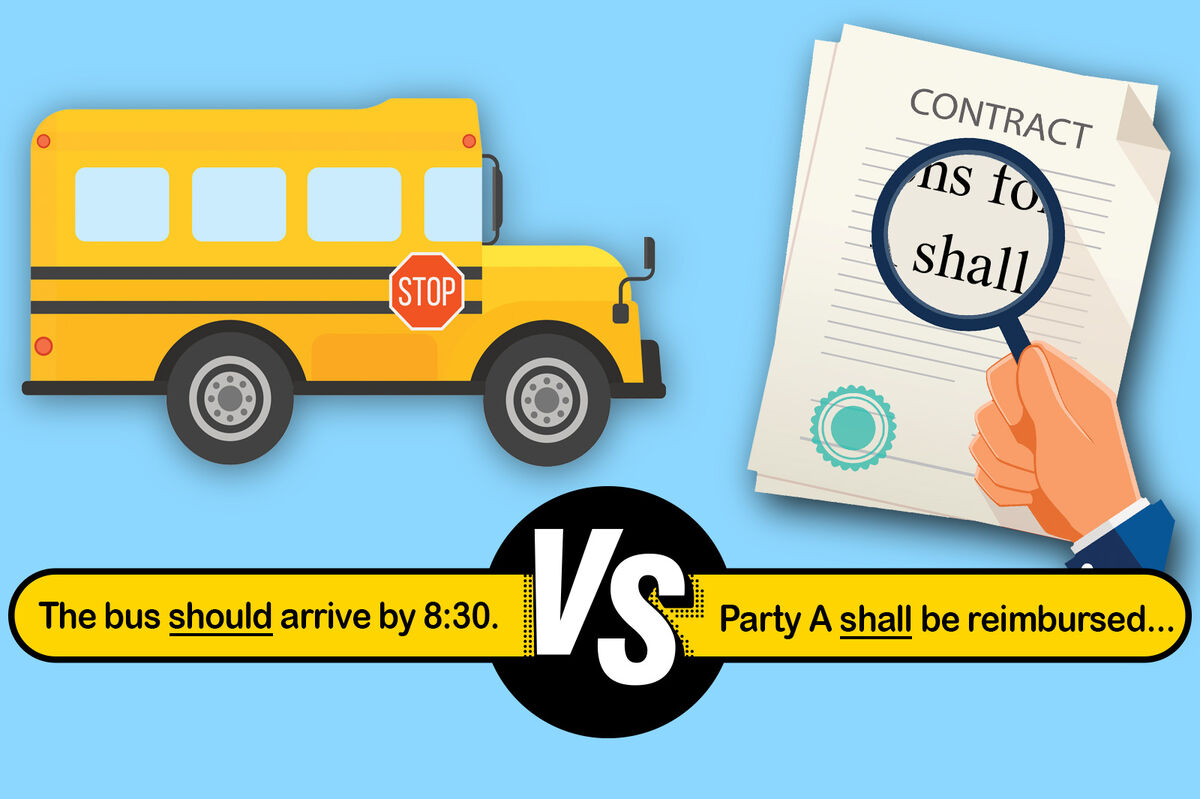
While “should” and “shall” are similar words, they have distinct meanings. Use these “should” and “shall” sentence examples and guidelines to help you understand which one you should use for your situation.
Why It Matters
Both “should” and “shall” are helping verbs or auxiliary verbs. They work with another verb to refine the meaning. However, the meaning they add is different. Ultimately, they indicate whether something might happen or definitely will happen. While it might sound subtle, that’s actually a very important distinction.
“Should” Indicates Uncertainty
When you say something should happen or someone should do something, you aren’t saying that thing is definitely going to happen. There’s a degree of uncertainty that goes with this word. It may mean it would be good if this thing occurred or the thing is likely to occur, but it is not a guarantee.
- You’ve had a sore throat for three days, so you should see a doctor.
- I should get more sleep at night.
- The bus should arrive at 8:30.
- I’m not sure where Jessica is right now, but she should be here soon.
- By the age of two, most children should be sleeping through the night.
"Should" oftentimes indicates that it is in the person's best interest to perform that action. For example, "You should look both ways before crossing the street."
“Shall” Is More Certain
In contrast, “shall” indicates something that will happen or that it is a promise about something. There’s nothing uncertain about it. "Shall" tends to be more formal as well, as might be the case with official rules.
- We shall follow the rules at school.
- I shall call you back after I finish this meeting.
- Airline passengers shall keep all personal items safely stowed until after takeoff.
- How you do it is up to you, but you shall make this right.
- The school shall provide accommodations for students with disabilities.
Legal Meaning of “Should” vs. “Shall”
The differences between the two words are especially important in a legal context. For instance, using “shall” vs. “should” in contracts and other legal documents can have a significant impact on whether someone is legally required to do something.
Legal Use of Shall
In legal terms, “shall” means something must happen. For example, in a legal document, you may see something like the following:
- Party A shall pay Party B $1,000 on January 1, 2021.
- If Party A has any further objections to this agreement, they shall inform Party B by January 1, 2021.
- Party A shall be reimbursed by Party B.
A Note About Modern Legal Usage
Because of the uncertainty about “shall” and “should,” the United States government has a guideline specifying the use of “must” in contracts and legal documents. This is considered “plain language.” In this case, neither “shall” nor “should” is the right choice.
Which Is Correct for Your Situation?
Because incorrectly using “shall” and “should” can cause confusion, it’s important that you choose the correct one for you situation. Ask yourself whether the outcome is certain or mandatory. If it is, “shall” might be the correct choice. If not, “should” is likely better.
Not Exactly the Same
“Shall” and “should” have very similar meanings, but they are not exactly the same. The nuances of whether something is certain to happen or likely to happen can have a major impact on the meaning of your sentence or document. Understanding these and other commonly misused words will help you get your point across clearly, whether you are speaking or writing.